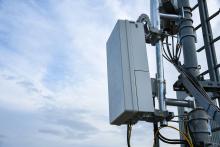Some 80 percent of MCI's revenues come from business accounts. To underscore its strength in that arena, the firm trotted out an impressive lineup of business customers, including DaimlerChrysler, NASDAQ, Emerson, Hughes Supply, and Seibel Systems. Emerson's CIO Ken Hahn said in a statement, "We believe in MCI's long-term strategy to deliver the next generation of IP services and the company's ability to deliver the solutions we need to succeed today and in the future."
MCI will be led by Michael Capellas, president and CEO, who said in a statement, "Somewhere between telecommunications and computers there's a new kind of company, and that's what MCI will be."
The firm promised to roll out new products and services in the coming weeks and months. In fact, Infonetics' Mitchell is looking for a healthy doubling in capital expenditures from MCI, as the firm moves to make up for the slowdown it experienced in bankruptcy. He is projecting a revenue decline for 2004, in large part due to the stiff competitiveness of its market. He noted that MCI currently owns no cell-phone business, but he expects the firm will fill that hole soon, possibly by signing a marketing deal with one of the existing wireless companies.
While MCI's revenue dropped from $32 billion in 2002 to an anticipated $21 to $22 billion this year, the company has kept most of its customers and, in fact, added more than three million residential customers in the past two years. The discrepancy between the rise in customers and the drop in revenues can be traced primarily to the price war that has plagued the telecom business in recent years.
While MCI is now on its own, some of its ties to WorldCom will remain. Richard Breeden, the court-appointed monitor of WorldCom for the past several months, will remain on the job at MCI for an indefinite period. The headquarters of the firm has been moved from Clinton, Miss., to Ashburn, Va.








